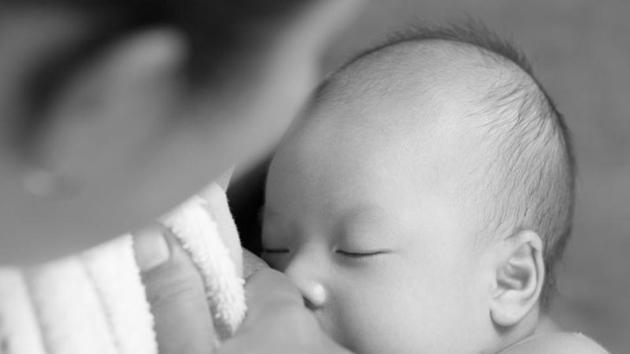Institutional delivery goes up, but breastfeeding within an hour of birth is just 28%
According to NFHS-4 (2015-16), institutional deliveries in Rajasthan are as high as 84%.
Rajasthan has drastically improved when it comes to institutional deliveries, the latest National Family Health Survey-4 (2015-16) shows. However, the picture is not so rosy when it comes to breastfeeding within one hour of birth.

According to NFHS-4 (2015-16), institutional deliveries in Rajasthan are as high as 84% (public and private hospitals). But when it comes to breastfeeding within one hour of birth the figure is a dismal 28.4%.
Provision of mother’s breast milk to infants within one hour of birth ensures that the infant receives the colostrum, which is rich in protective factors
Institutional deliveries at government facilities are at 63%in NFHS-4, a huge improvement from 19% in NFHS-3 2005-06.
According to the latest survey, 58.2% children under six months are exclusively breastfed in the state.
In NFHS-3, institutional delivery in Rajasthan 29.6% (public and private) while children breastfed within an hour of birth was at 13.3%.
Speaking about breastfeeding within an hour of birth not matching with institutional deliveries, Dr SM Mittal, director reproductive and child health, said, “Social and traditional beliefs are still strong. Due to which many children remain deprived of mother’s milk within an hour of birth along with problems like the newborn being unable to suckle. We are making efforts to increase this percentage and soon it will increase.”
UNICEF Rajasthan nutritional specialist Minakshi Singh suggested that the woman should be shifted to the ward or room after the delivery for breastfeeding the child. This will increase breastfeeding within an hour of birth at least at public health facilities. “This way, the woman’s family members cannot force her to first give ghutti, honey, water to the newborn,” said Singh.
Devendra Agarwal, adviser to the state health department for Aanchal Mother’s milk bank project said, once the mother delivers her baby, she is immediately shifted to breastfeeding clinic so as to ensure that the baby gets mother’s milk within an hour and trained staff to teach her how to hold the baby, position to feed etc.
At present, Rajasthan has 13 breastfeeding clinics at the mother milk banks at Bharatpur, Alwar, Chittorgarh, Beawar, Banswara, Bhilwara, Bundi, Tonk, Baran, Churu, Udaipur, Karauli and Dholpur. Five more milk banks will be opened at Rajsamand, Barmer, Jalore, Sirohi and Sawai Madhopur in the next two months, which will also have breastfeeding clinics. Apart from these, 25 breastfeeding clinics will come up in next six months in districts with a high delivery load.
He said that breastfeeding clinics will create awareness and facilitate breastfeeding, and also train, assist and treat lactating mothers. He said these clinics will also be helpful for mothers who have a premature delivery, newborns unable to suckle because of cleft lips, retracted nipple, non-formation of milk etc. They will also counsel and train family members of the new mother not to give honey, water, ghutti etc for first six months.





